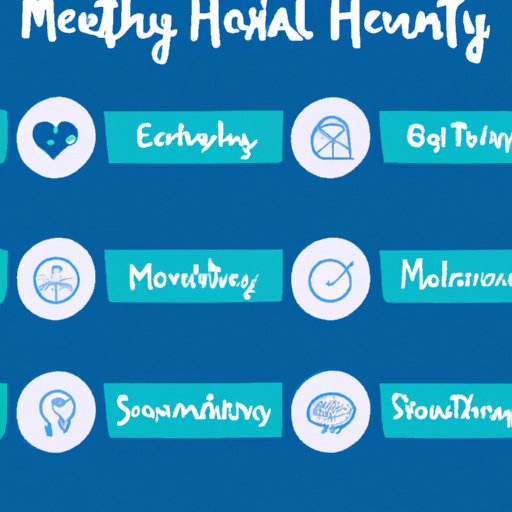Introduction
Mental health is defined as “a state of well-being in which every individual realizes his or her own potential, can cope with the normal stresses of life, can work productively and fruitfully, and is able to make a contribution to her or his community” (World Health Organization). Good mental health is essential for overall well-being, impacting our relationships, productivity, and physical health.
Examining the Benefits of Mental Health Education
Mental health education can help individuals understand their own emotions and develop skills for creating healthy relationships. Dr. John Sharp, Harvard Medical School professor and author of The Emotional Calendar, explains that “emotional intelligence is just as important as cognitive intelligence. It’s about understanding your own feelings and the feelings of others” (Harvard Health Publishing). By gaining insight into their emotional states, individuals can better manage their stress and anxiety levels.
Learning about mental health can also help individuals identify when they need to seek professional help. According to the Anxiety and Depression Association of America, “early diagnosis and treatment of mental health conditions can often prevent more serious, long-term problems” (ADAA). Through mental health education, individuals can become more aware of the signs and symptoms of mental health issues and know when to reach out for help.

Investigating the Link between Mental Health and Physical Health
Mental health has a direct impact on physical health. Studies have shown that mental health issues such as depression and anxiety can increase the risk of developing chronic conditions, including heart disease and diabetes (Harvard Health Publishing). Additionally, research has found that individuals who suffer from mental health conditions are more likely to engage in unhealthy behaviors such as drinking alcohol and smoking cigarettes, which can further damage physical health.
Mental health can also affect productivity and performance. A study conducted by Gallup found that employees who reported higher levels of wellbeing were more engaged at work, resulting in higher productivity (Gallup). Furthermore, the American Institute of Stress has reported that workplace stress costs employers an estimated $300 billion each year due to decreased productivity and increased medical expenses (American Institute of Stress). Thus, it is important for employers to prioritize mental health and create a supportive work environment.
Conclusion
Mental health is an essential component of overall well-being, providing benefits such as improved relationships and better productivity. It also has a direct impact on physical health, with studies indicating that mental health issues can increase the risk of developing chronic conditions. Finally, mental health is linked to workplace performance, with workplace stress costing employers billions of dollars each year.
If you are struggling with mental health issues, remember that help is available. Reach out to a therapist or mental health professional, or contact organizations such as the National Alliance on Mental Illness and the Anxiety and Depression Association of America for additional resources.
(Note: Is this article not meeting your expectations? Do you have knowledge or insights to share? Unlock new opportunities and expand your reach by joining our authors team. Click Registration to join us and share your expertise with our readers.)
